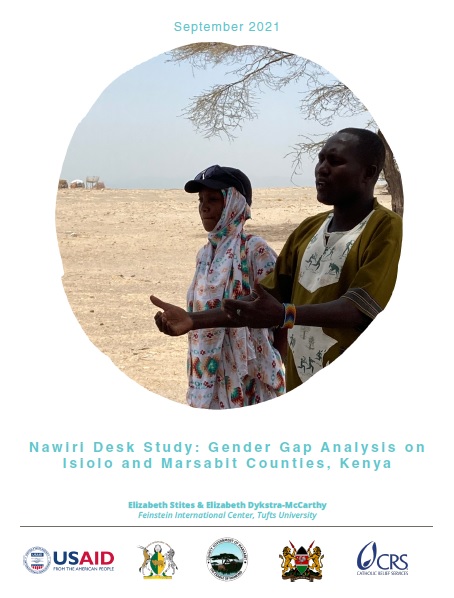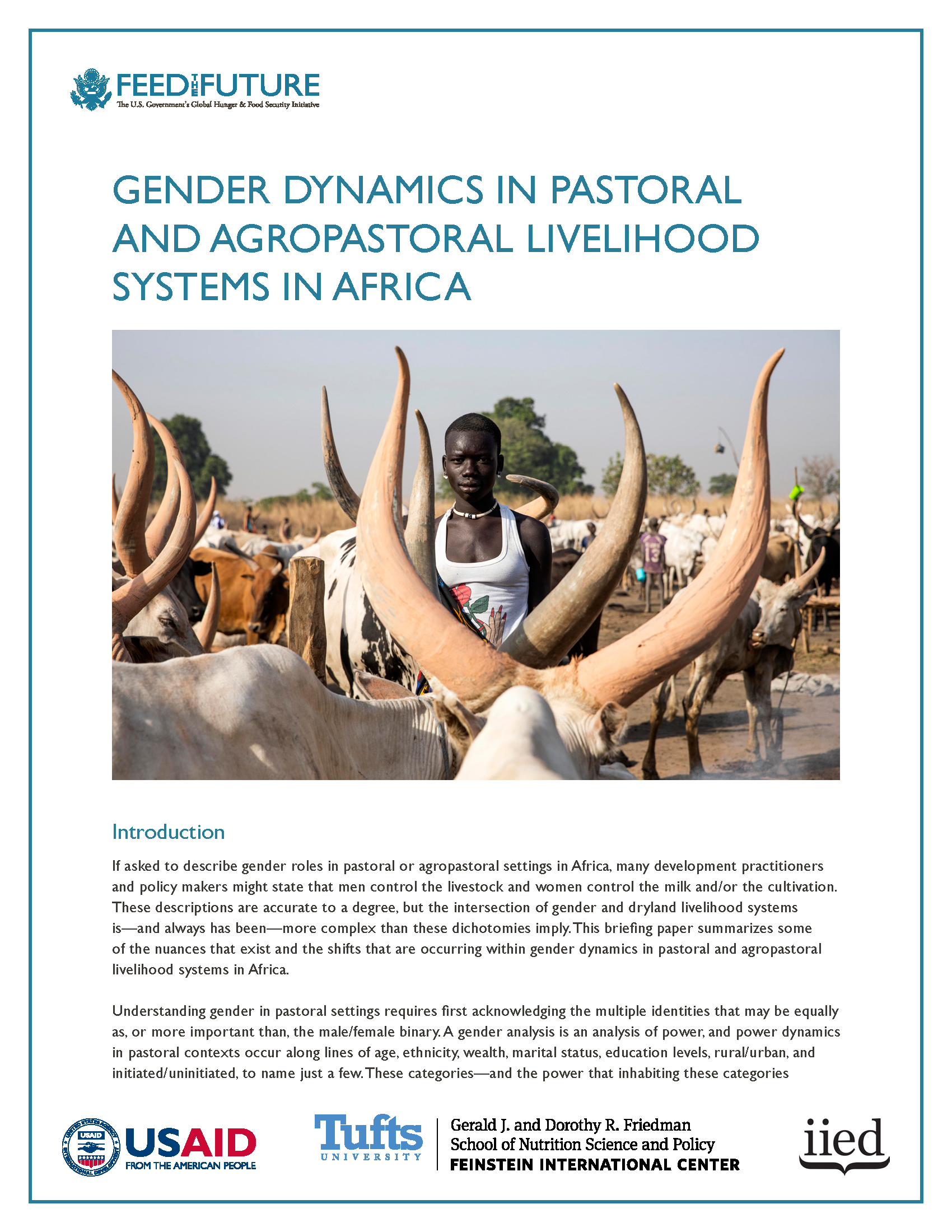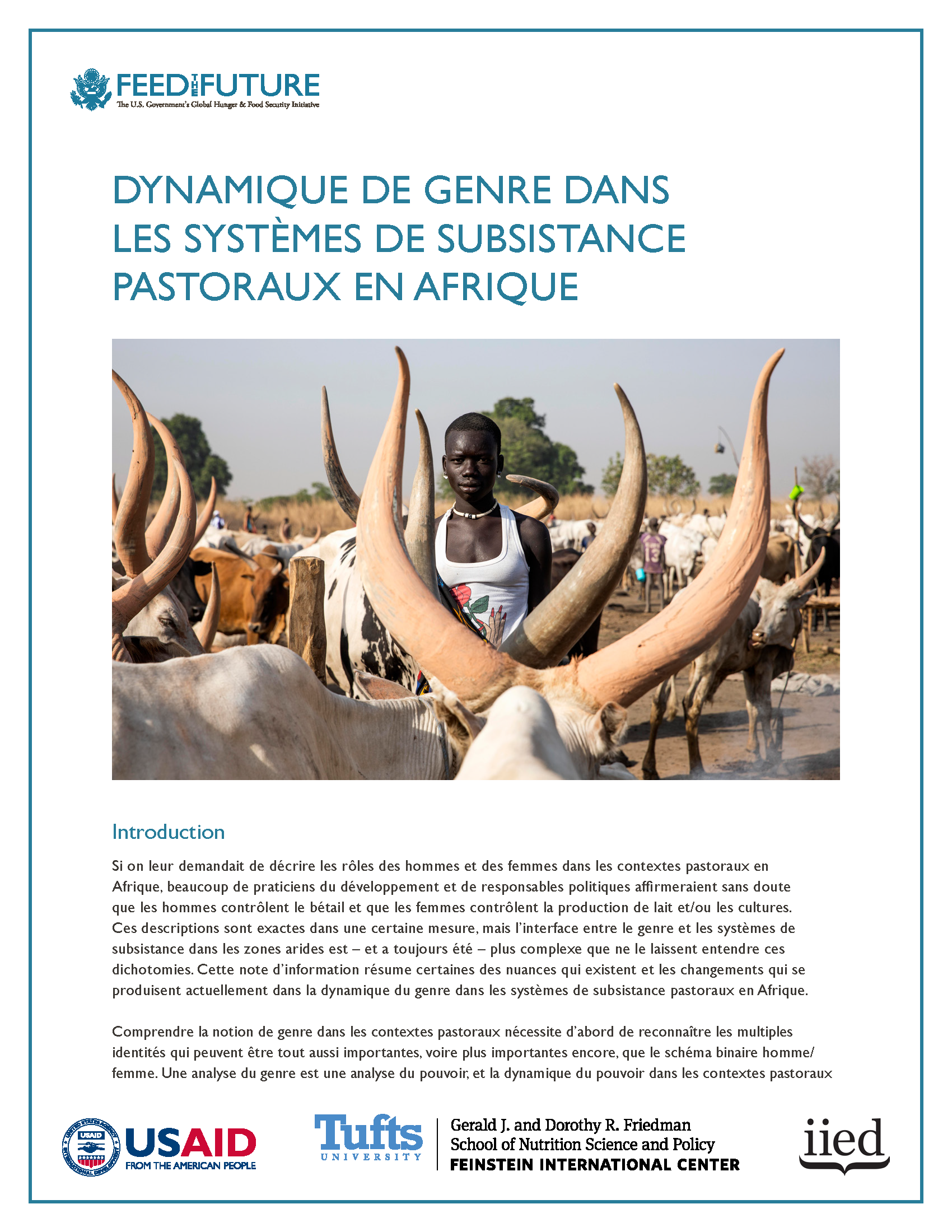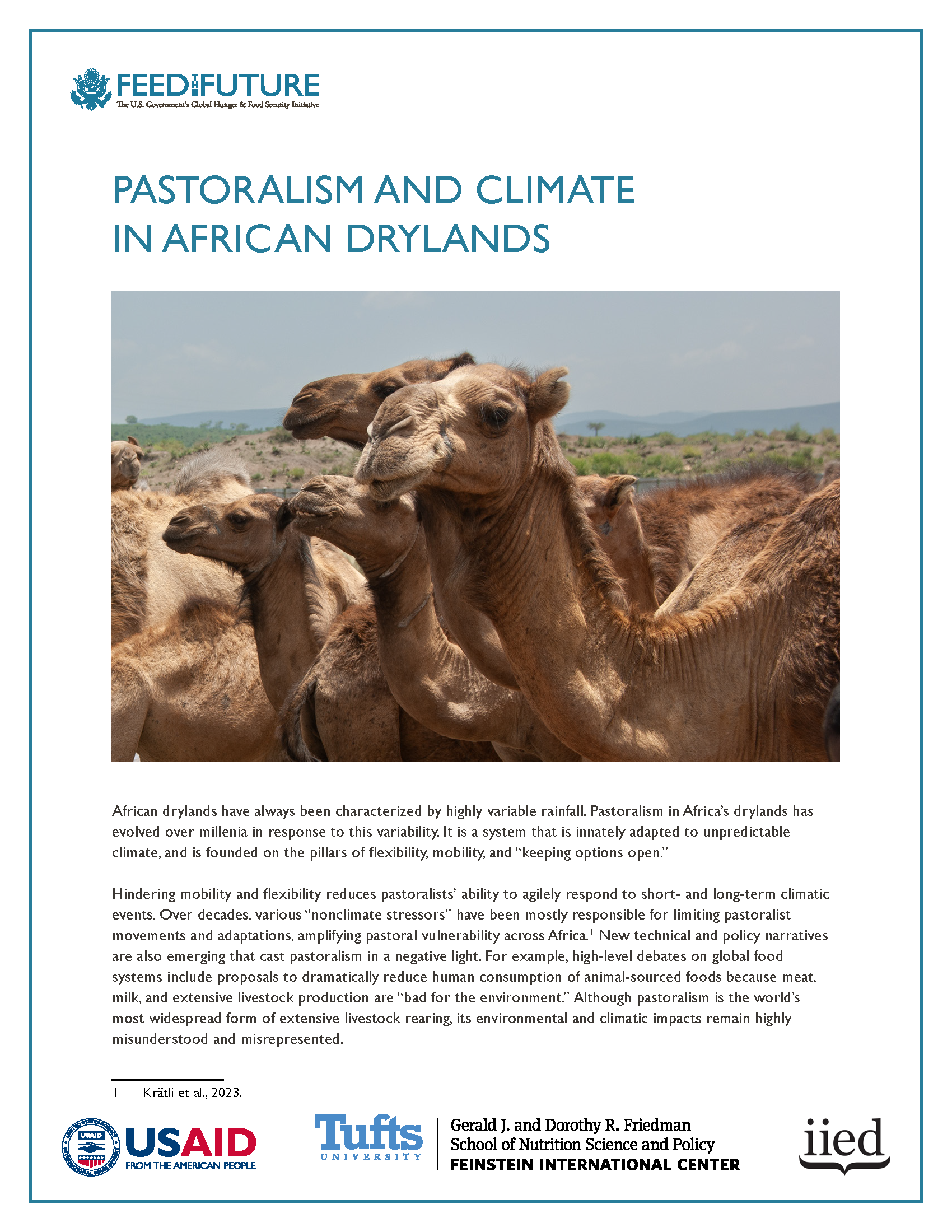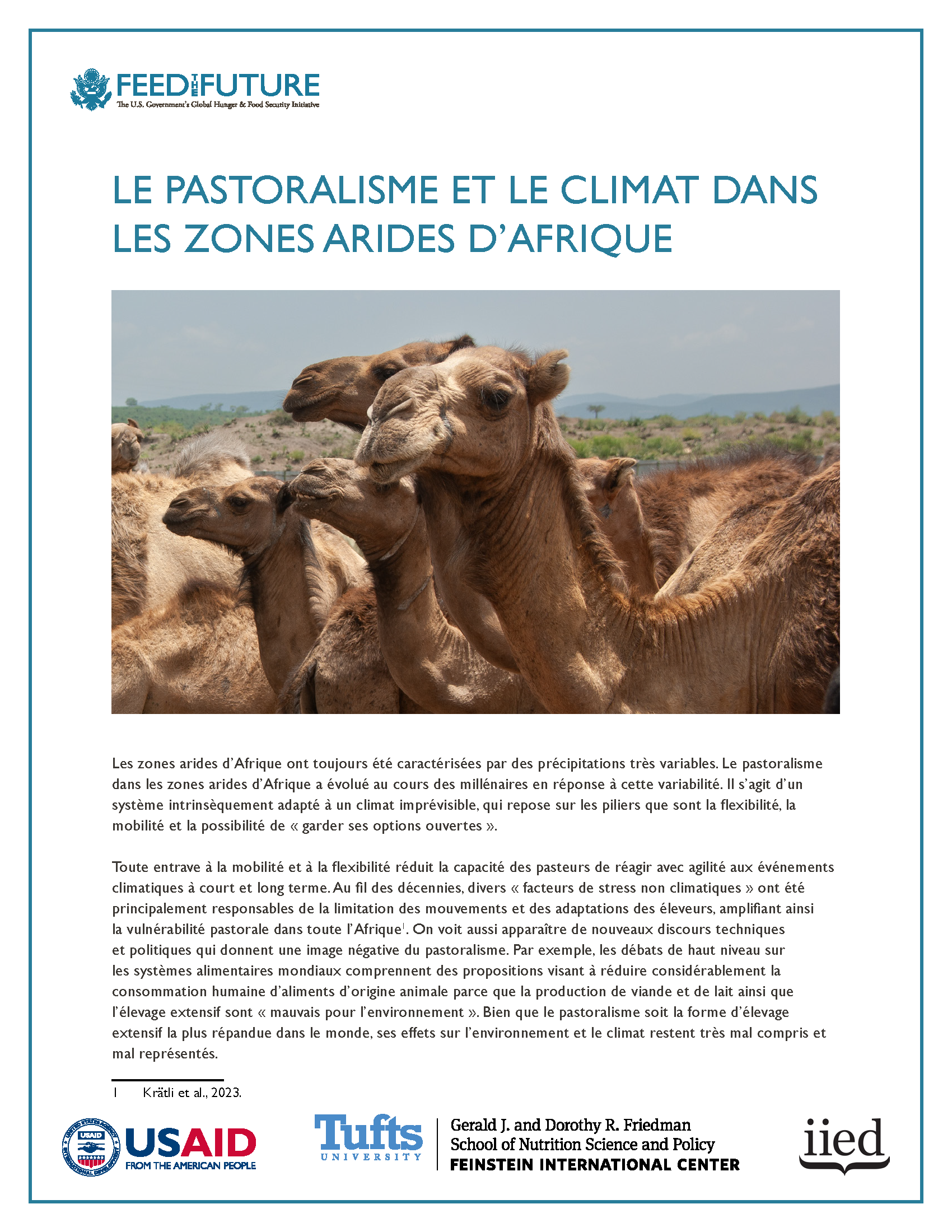This desk study analyzes available information and identifies evidence and knowledge gaps around livelihood systems from a gender perspective in Isiolo and Marsabit Counties in northern Kenya. The analysis aimed to identify thematic areas in which evidence on gender dynamics is lacking and which have potential relevance for our understanding of acute malnutrition in the region.
The analysis found that evidence is lacking in four thematic areas:
- The impacts of sedentarisation on nutritional status from a gendered perspective: We know that many people who once specialized in pastoral livelihoods have settled in recent years and we know that patterns of sedentarisation are gender specific. However, we know little about the longer-term impacts and outcomes by gender and age on nutritional status, food security, and gender dynamics at the household level.
- The intersection of pastoral mobility, gender dynamics, and nutritional outcomes: While we know that transhumant patterns have evolved, we know little about how patterns of mobility, access to animal products, decision-making, intra-household dynamics, and nutritional and food security outcomes differ by gender and age.
- How changing gender and generational roles may impact livelihood systems and nutritional outcomes: Gender and generational norms and roles are closely linked to how households and communities manage food security and nutrition. We have little information on how these norms and roles have evolved in Kenya’s dryland areas, how these shifts affect social, economic, and political dynamics, and the associated implications for nutrition.
- The changing and current role of customary social safety nets and how these changes may be influencing nutritional outcomes and food security systems: We know that these mechanisms are highly gendered but do not know how evolving gender and generational norms may impact the functioning of these systems and their ability to mitigate malnutrition.
This study is part of the Nawiri (Nutrition in the ASALs within Integrated Resilient Institution) program. Nawiri aims to sustainably reduce persistent acute malnutrition by designing and implementing an approach for supporting, strengthening, and protecting systems and institutions. The project is funded by USAID/Bureau of Humanitarian Assistance (BHA) and the consortium implementing the program in Isiolo and Marsabit counties in northern Kenya is led by Catholic Relief Services (CRS).

